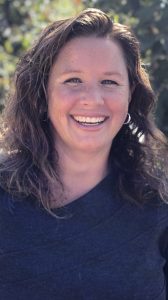OXFORD, Miss. – Brooke Whitworth, assistant professor of science education at the University of Mississippi, is the recipient of the 2019 Outstanding College Science Teacher Award from the Mississippi Science Teachers Association.
MSTA is a statewide nonprofit that supports a network of science educators and aims to promote interconnections between science, teaching and educational resources. Whitworth received the award Tuesday (Oct. 29) at the annual MTSA convention awards luncheon in Biloxi.
“I grew up wanting to be a teacher,” she said. “As a science educator, I like helping kids and knowing when they finally understand an idea they didn’t understand before.”
Whitworth joined the UM Department of Teacher Education in 2017. Before moving to Oxford, she taught science education at Northern Arizona University in Flagstaff. Earlier, Whitworth taught high school science in North Carolina and Hawaii for nine years.
The Outstanding College Science Teacher Award is presented to outstanding higher education science teachers who make an impact on their students and the field of science education. Whitworth was nominated for the award by two of her graduate students, Lauren Simpson and Shunderla Wilson, both master’s degree students in secondary science education at UM.
“I was a part of the first batch of students Dr. Whitworth received when she joined the Ole Miss SOE family,” said Wilson, a Sardis native. “She has many roles within her job, but she tackles each one with the utmost care because of her love for the program, and she has taken the initiative to change the program to correspond to the needs of future science teachers.”
Whitworth received her undergraduate degree in chemistry from William Jewell College in Liberty, Missouri, and her master’s degree in secondary education from Wake Forest University. She also holds a doctorate in science education from the University of Virginia.
“When I work with teachers, I love to see them make connections,” Whitworth said. “When they realize what they do can have an impact on their students, and then understand how to enact what they are learning in the classroom, that’s what I like about teaching science teachers.”
